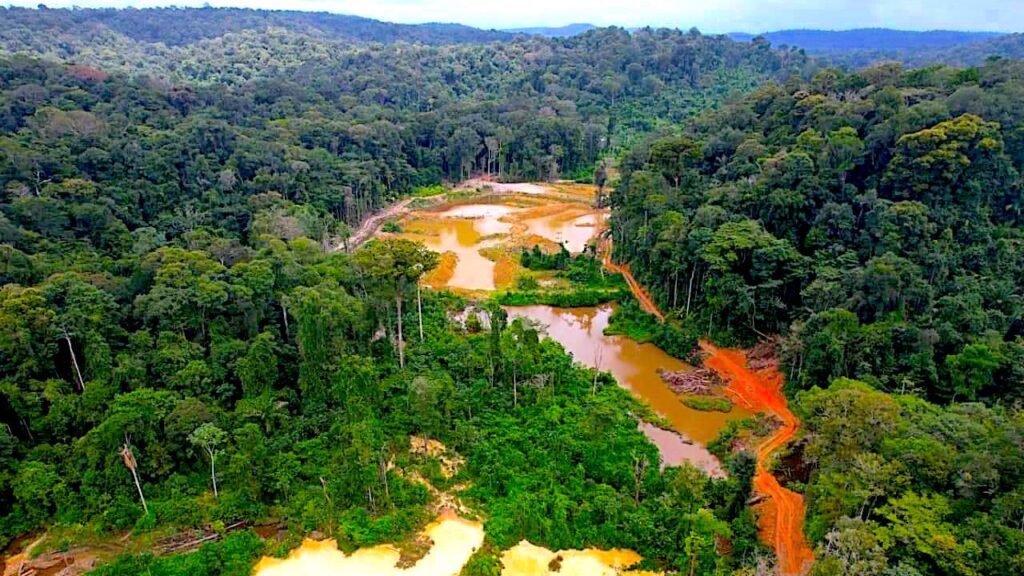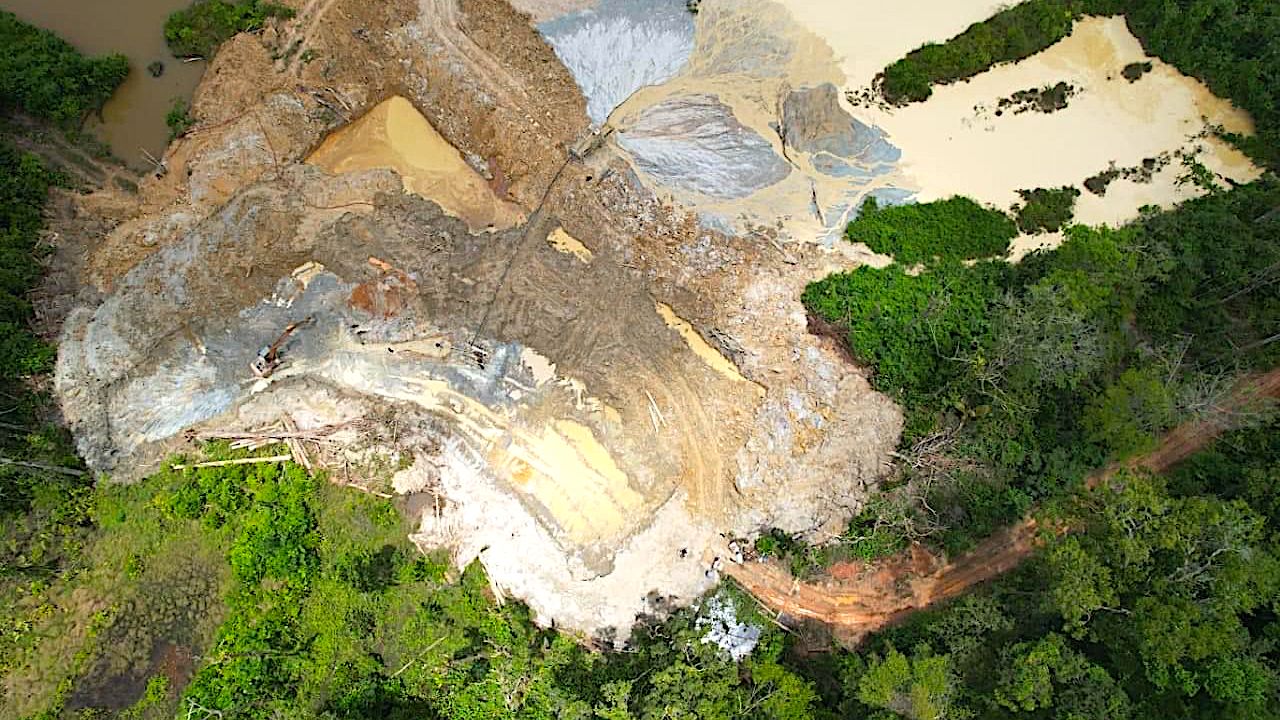It has been scientifically proven for some time that forests slow the rate of climate change. They reduce the amount of carbon dioxide (CO2) in the atmosphere because they absorb more CO2 than they release. Since the main cause of climate change is the abundance of carbon dioxide in the atmosphere, deforestation directly leads to global warming. According to the United Nations Environment Program (UNEP), deforestation and forest degradation are responsible for 11 percent of carbon emissions.
Status of percentage forest cover in Suriname

Photo: Mulokot Foundation
According to a report from the World Wild Fund for Nature (WWF) earlier this year, forest cover in Suriname is declining by 0.06 percent annually. Suriname claims through President Chan Santokhi that it still has 93 percent forest cover. He is supported in this by Minister Marciano Dasai of Spatial Planning and the Environment (ROM). However, many within the climate change movement question this. This also applies to Erlan Sleur, chairman of the environmental organization Probios. The environmental activist dismisses the fact that Suriname still has 93 percent forest. He states that this percentage has been declining for some time.
Stanley Betterson, director of the Forest Management and Forest Supervision Foundation (SBB), dismisses claims that forest cover in Suriname is now significantly below 93 percent. “According to the latest measurements, we have 92.6 percent forest, so rounded to 93 percent forest,” says Betterson. He indicates that the last measurement took place this year. However, he could not specify a specific time frame. He does say that monitoring takes place on a constant basis.
The same WWF report further states that Suriname excels in the field of mining-related deforestation. Unfortunately, not in a positive way. Relative to other causes of deforestation, Suriname has the highest percentage of deforestation due to mining activities. This concerns a percentage of 28.5 percent, which corresponds to an area of 527 km².

Both Betterson and Dasai acknowledge that the illegal mining sector is responsible for large-scale deforestation in Suriname. “Unfortunately, we as SBB cannot do much about this. We are responsible for logging that complies with the Forest Management Act . If we find logs that are illegal, we usually suspect that they have been obtained through illegal mining activities. This is then seized and reports are drawn up and forwarded to the Attorney General,” Betterson explains. According to him, it is the responsibility of the PG to take further action against those guilty of illegal logging.
However, Betterson believes that sufficient action is often not taken against these offenders. He believes that offenders are treated with kid gloves because the individual often pays a fine but then regains possession of the wood. “People must be reminded of their responsibility by imposing strict business consequences, then they will unlearn it.”
Dasai indicates that a project is being implemented together with the Ministry of Natural Resources and the National Institute for Environment and Development in Suriname (NIMOS) known as “Improving Environmental Management in the Mining Sector of Suriname (EMSAGS). The aim is to train small-scale gold miners in the application of environmentally responsible mining technologies and to stimulate sustainable deforestation.
ACTO summit, has Suriname voted against combating deforestation?
In August this year, the two-day Amazon Summit took place in Belém, Brazil. This was attended by the eight countries that signed the Treaty for Amazonian Cooperation (TAC) on July 3, 1978. The countries now form the Amazon Cooperation Treaty Organization (ACTO). These are the countries where the Amazon rainforest is rooted, namely: Bolivia, Brazil, Colombia, Ecuador, Guyana, Peru, Suriname and Venezuela. During the summit, heads of state/delegates met to consider steps to protect the Amazon rainforest.
Sleur indicated that he was present in Belém prior to the meetings on August 8 and 9, together with thousands of other environmental activists. According to him, the purpose of this was to put pressure on the leaders of the various countries to make the right decisions in the interest of the Amazon forests.
According to Sleur, it has been leaked through a Brazilian CNN journalist that Suriname, Guyana and Bolivia have voted against an important proposal from President Luiz Inácio Lula da Silva of Brazil. It would be a proposal to stop all deforestation in the Amazon countries by 2030.
Sleur says that other intentions have been signed in which countries will combat deforestation “at their own pace”. However, the environmental activist believes that this is a waste of money, because there is no concrete treaty with time targets as in the Brazilian president’s initial proposal.
Environment Minister Dasai indicated that he was present at the summit together with Minister Albert Ramdin of Foreign Affairs, International Business and International Cooperation (BIBIS). Dasai strongly denies that Suriname has voted against any proposal in the interest of combating deforestation. “Suriname has actually asked Brazil for support to combat deforestation. This is because our neighboring country uses advanced technology to locate the exact locations of deforestation,” says the minister. According to him, the support has also been promised to our country. Dasai criticizes the incorrect reports in the media and claims to have no idea how Sleur obtained this information.
This story was published by Srherald.com with the support of the Caribbean Climate Justice Journalism Fellowship, which is a joint venture between Climate Tracker and Open Society Foundations.s.